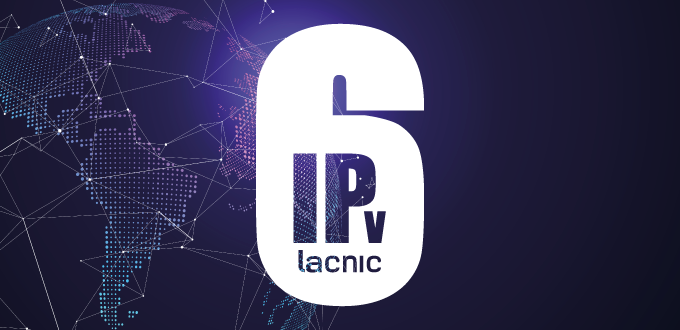The internet is growing fast, and Spain is leading the way in adopting new technologies. An interesting fact is that Spain’s IPv6 adoption rate has reached nearly 40%, reflecting the country’s proactive approach to staying connected and secure in the digital age. For businesses looking to rent IPv6 addresses or buy IPv6, the time to act is now. By adopting IPv6, Spanish organizations can future-proof their networks, unlock new opportunities, and position themselves for success in an increasingly connected world.
A big part of this change is moving from IPv4 to IPv6, which will help Spain stay connected, secure, and innovative. This article looks at how important IPv6 is for Spain’s digital future, the challenges ahead, and how businesses and the government can work together to make the switch smooth and successful.
Table of Contents
- The Role of IPv6 in Spain’s Digital Transformation Strategy
- Understanding Spain’s Digital Transformation Agenda
- Why IPv6 is Essential for Spain’s Digital Future
- Challenges in Integrating IPv6 into Spain’s Digital Strategy
- Key Initiatives Driving IPv6 Adoption in Spain
- The Economic Impact of IPv6 in Spain
- Final Words: The Future of Digital Spain with IPv6
Understanding Spain’s Digital Transformation Agenda
Spain is pushing to modernize its economy, improve public services, and become a leader in the global digital world. The government has set clear goals:
- Enhance Connectivity: Improve internet access and mobile coverage across Spain.
- Drive Innovation: Use emerging technologies like AI and IoT to boost economic growth.
- Promote Digital Inclusion: Make sure everyone has access to digital services, bridging the digital divide and improving digital literacy.
Why IPv6 is Essential for Spain’s Digital Future
IPv6 is key to Spain’s digital growth:
IPv6 is crucial for Spain’s digital growth. Its vast address space can support the increasing number of connected devices, from smart homes to IoT sensors, ensuring scalability for the future. IPv6 also enhances security with built-in features like IPsec, making online data safer—especially important for sectors like finance and healthcare. Moreover, IPv6 enables digital innovation by supporting key technologies in Spain’s digital strategy, such as AI and smart cities, keeping the country at the forefront of technological advancement.
However, the transition to IPv6 comes with challenges. Upgrading from IPv4 can be complex and costly (Learn more about IPv4 vs. IPv6), particularly when managing dual-stack environments during the switch. Additionally, the initial investment in infrastructure, training, and potential downtime can be significant, especially for smaller organizations. Despite these hurdles, the benefits of IPv6 make it essential for Spain’s future.
Challenges in Integrating IPv6 into Spain’s Digital Strategy
Moving to IPv6 isn’t without hurdles:
Upgrading older systems from IPv4 to IPv6 can be both complex and costly, especially when dual-stack environments are needed during the transition. This adds layers of complexity that organizations must carefully manage. The initial costs of upgrading infrastructure, training staff, and handling potential downtime can be significant, posing a particular challenge for smaller organizations with limited resources.
Additionally, there are knowledge and training gaps that need to be addressed. Many IT professionals require training to effectively manage and optimize IPv6 networks, which necessitates an investment in education and ongoing support. Ensuring that staff are well-equipped to handle IPv6 is crucial for a smooth and successful transition.
The Economic Impact of IPv6 on Spain’s Digital Landscape
As Spain moves to IPv6, the economic benefits are clear. IPv6 offers a stronger, more secure internet foundation and opens doors to new opportunities. By adopting IPv6, Spain strengthens its position in the global digital economy, attracting investment and driving innovation.
One of the biggest advantages of IPv6 is its support for the Internet of Things (IoT). As more devices connect, industries like manufacturing, agriculture, and healthcare can improve efficiency through real-time data collection. This boost in efficiency leads to cost savings, higher productivity, and new business models. For example, smart cities using IPv6 can manage resources better, lower energy use, and improve residents’ quality of life.
Moreover, IPv6 allows businesses to expand their digital services and reach new markets. Unlike IPv4, IPv6 provides nearly limitless IP addresses, letting companies scale globally and offer personalized services in new regions. This scalability is especially helpful for Spanish startups and small businesses looking to grow internationally.
IPv6 also enhances security with built-in features like IPsec, protecting businesses from cyber threats and ensuring safe digital transactions. This security builds trust with consumers and business partners, fueling growth in e-commerce and digital services.
Key Initiatives Driving IPv6 Adoption in Spain
Spain’s transition to IPv6 is not happening in isolation; it’s the result of concerted efforts across various sectors. Recognizing the critical role IPv6 plays in the country’s digital future, both the government and private sector are actively working to accelerate its adoption. These initiatives are designed to overcome the challenges of the transition and ensure that Spain remains at the forefront of digital innovation. Here’s how they are doing it:
- Government-Led Initiatives: The Spanish government is encouraging IPv6 adoption with policies, incentives, and support for infrastructure upgrades. By setting clear targets for IPv6 deployment, the government is driving both public and private sectors to make the transition. Additionally, government-funded programs are providing the necessary resources and technical assistance to ease the shift from IPv4 to IPv6, ensuring that even smaller organizations can keep pace with this critical change.
- Industry Collaboration: Telecom companies and tech firms in Spain are making their networks IPv6-ready and helping others transition smoothly. Major internet service providers (ISPs) are leading the way by upgrading their infrastructure to support IPv6 and encouraging their customers to do the same. Technology companies are also playing a crucial role by developing IPv6-compatible products and offering consulting services to guide businesses through the transition process.
- Private Sector Initiatives: IPv6 rental services and support programs for SMEs are making it easier for businesses to adopt IPv6 without a huge upfront cost. These services allow companies to lease IPv6 addresses temporarily, offering a flexible and cost-effective solution for those hesitant to commit to a full-scale upgrade. Additionally, workshops and training programs are being offered to equip smaller businesses with the knowledge and tools needed to implement IPv6 successfully. This approach ensures that even the smallest players in Spain’s economy can benefit from the advantages of IPv6.
Final Words: The Future of Digital Spain with IPv6
Spain’s move to IPv6 is crucial for its digital future. By embracing IPv6, Spain is preparing for a more connected, secure, and innovative world. Businesses and public institutions should act now to stay ahead, using flexible solutions like IPv6 rental services to manage the transition. While there may be challenges, the benefits of IPv6 far outweigh the obstacles.
With the right approach, Spain can fully leverage IPv6 to strengthen its digital infrastructure, drive innovation, and remain a global technology leader. The future is bright, and IPv6 is the key to unlocking it.



